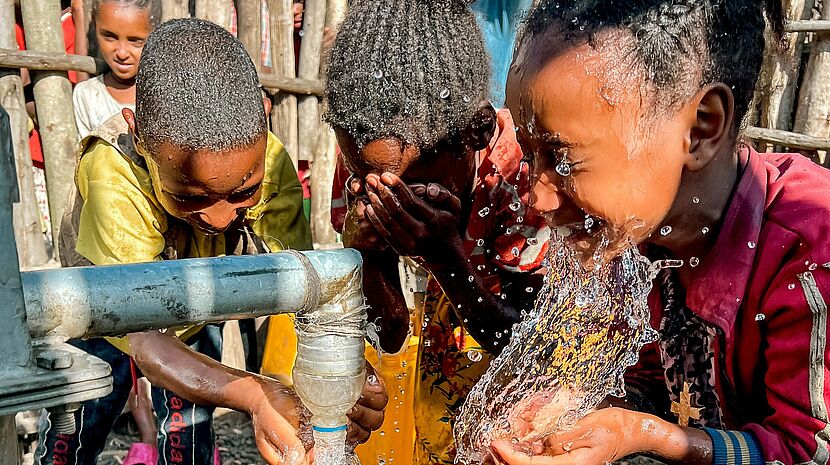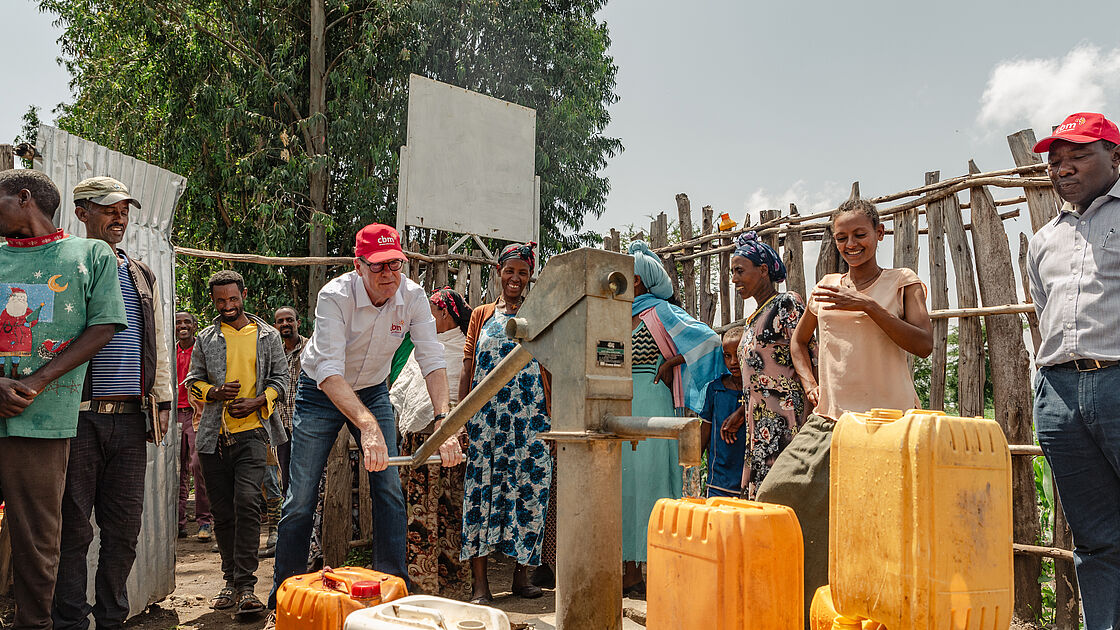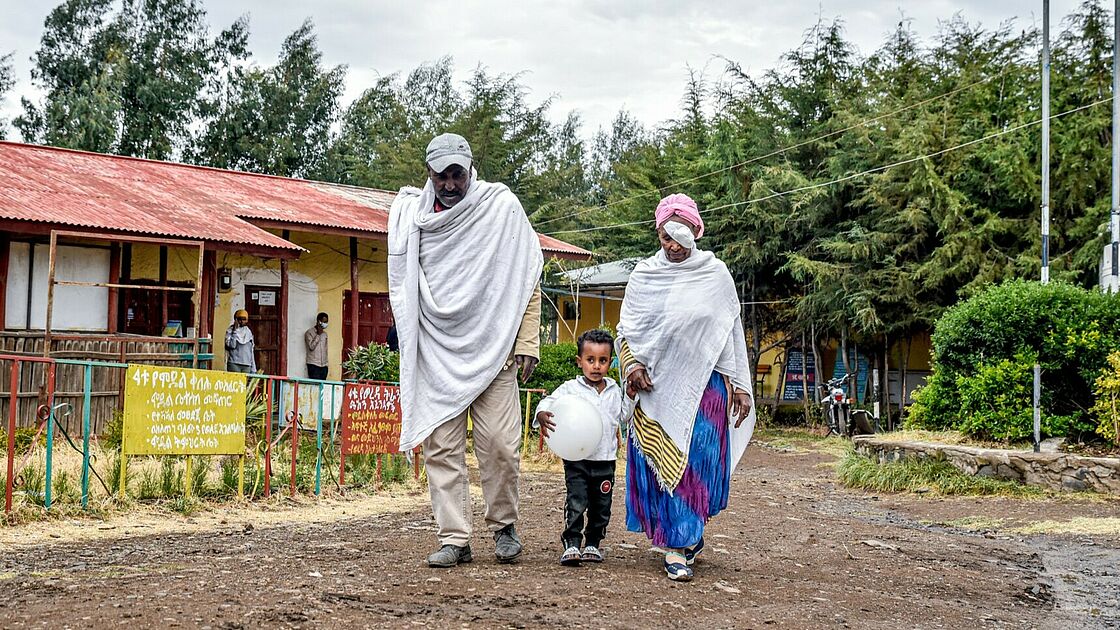World Water Day:
CBM builds wells for healthy eyes

Bacterial eye disease can be prevented with clean water.
Clean water is an important prerequisite for a healthy life. However, many people in do not have access to clean and safe water for drinking and everyday use.
Yet access to clean water and sanitary facilities can protect people from severe pain and blindness. Severe pain, like that of 64-year-old Meseret in northern Ethiopia. CBM is therefore building wells and treating the people affected.
Meseret is the mother of six grown-up children. She lives with her husband in a rural area in northern Ethiopia. Her husband works in the fields while she binds baskets, looks after her grandson and runs the household. In the last two years, cooking has been a great pain for her. Her eyes hurt because of trachoma, a bacterial eye disease (Chlamydia trachomatis) and the leading cause of global blindness due to infection. The smoke from an open kitchen fire makes the pain even worse. The highly contagious eye infection spreads where the water supply is poor. Once infected, the eyes become inflamed again and again, as with conjunctivitis. The smoke is an additional irritant.
Prevention: Well construction

CBM CEO Dr Rainer Brockhaus, Board Members Dr. Siegfried Fischer and Claus Duncker and Albert Kombo, AFES Regional Director, visited a shallow water well built with the support of CBM.
CBM
According to the World Health Organisation, trachoma is one of the most common cause of infectious blindness worldwide, especially in poor and underdeveloped regions. As a result, 1.9 million people can no longer see well and 125 million people worldwide are at risk of infection. CBM is working closely with its local project partner ORDA in Ethiopia to effectively contain the disease. ORDA educates people about trachoma, trains specialists in surgical techniques and builds barrier-free wells. This is because if people in the affected regions wash their faces regularly, the bacteria have less chance of spreading. If people do become infected, an eye ointment helps them in the early stages. ORDA has health workers who search for affected people in the villages. If the infection remains undetected for a long period of time, people need surgery.
Advanced infection, only surgery can help

Meseret's infection was already very advanced. Her eyesight was in danger. Scars had formed, pulling the eyelashes inwards. Everyone knows the sandy feeling when an eyelash scratches the eye. People with trachoma experience this every time they blink. The eyelashes destroy the cornea and lead to blindness. The woman urgently needed surgery to prevent this. Fortunately, CBM's project partner ORDA has specialists who look for those affected and perform the necessary trachoma-trichiasis eyelid surgery in local health centres. Meseret was operated on and her eyesight was saved. She is happy that she will not go blind and that neither her grandson nor her husband are infected.